
Construction Cost Management Trends in 2026: Market Reset and the Commercial Control Loop
The construction sector entering 2026 is neither in crisis nor in a conventional recovery. It is operating in a state of reset. Market activity remains
Bauwise software capabilities
Allocate budget based on construction stages or buildings. Track Forecast to Complete (FTC) and Estimate at Completion (EAC). Control budgets through versions and approval locks. Forecast profitability, manage accruals, and sync financial data with integrated accounting or ERP software.
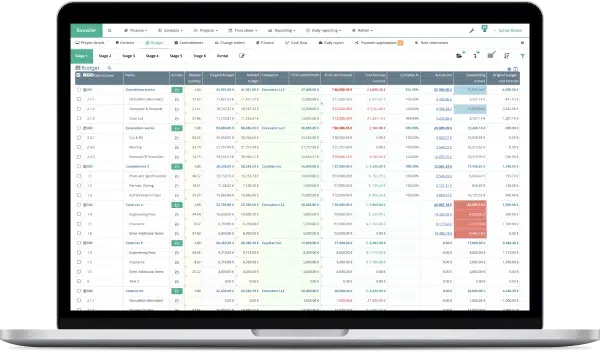
Bauwise helps construction teams achieve Automated Construction Budgeting & Forecasting — to improve cost control, streamline workflows, and deliver on budget.
Construction project profitability
Construction Projects
Of Construction Budgets
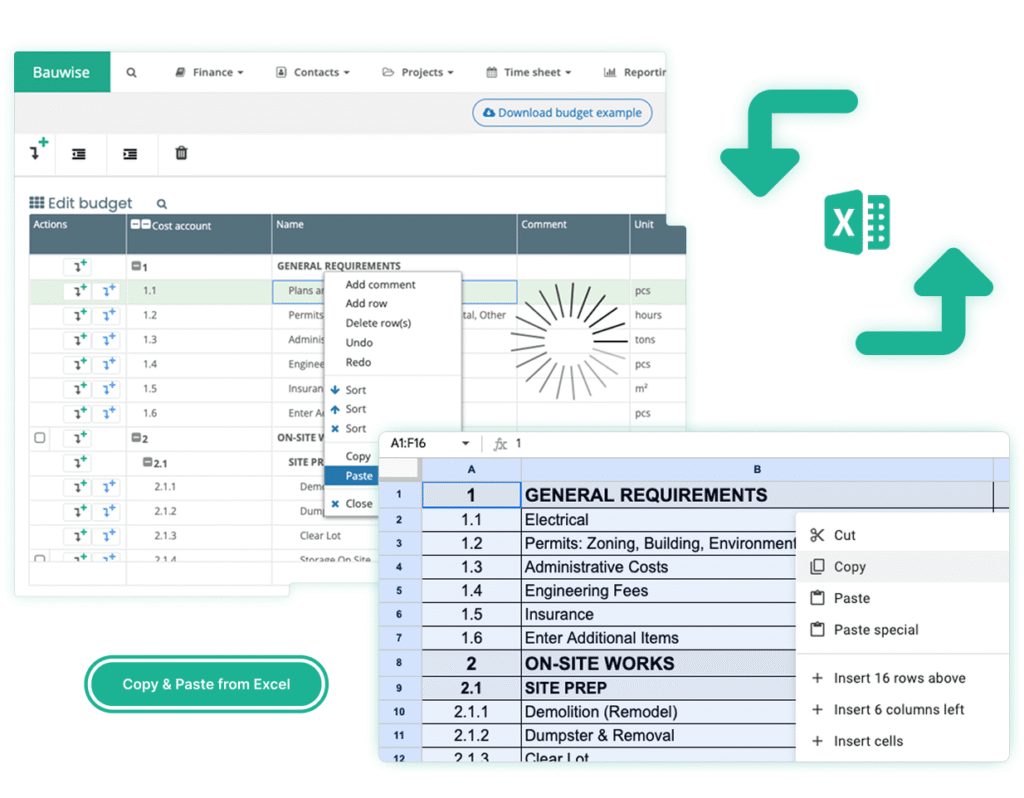
Create or import construction budgets by phase, task, or division. Easily copy and paste data from any spreadsheet directly into Bauwise — no upload required. The system automatically generates Work Breakdown Structure (WBS), which can optionally be mapped to a predefined template.
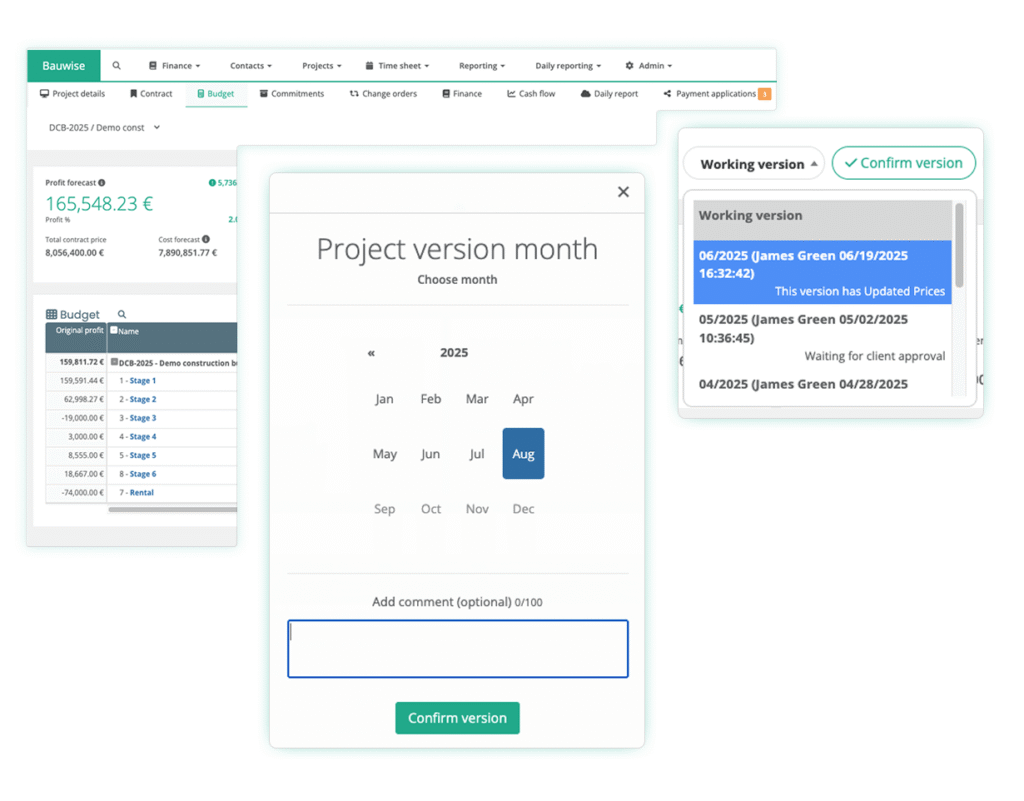
Track, review, and approve budget changes by capturing snapshot-based versions of the project’s financial statuses in monthly or weekly intervals. Compare version forecasts, monitor changes, and maintain a clear audit trail. Ensure that both project managers and executives are aligned before confirming budget revisions.
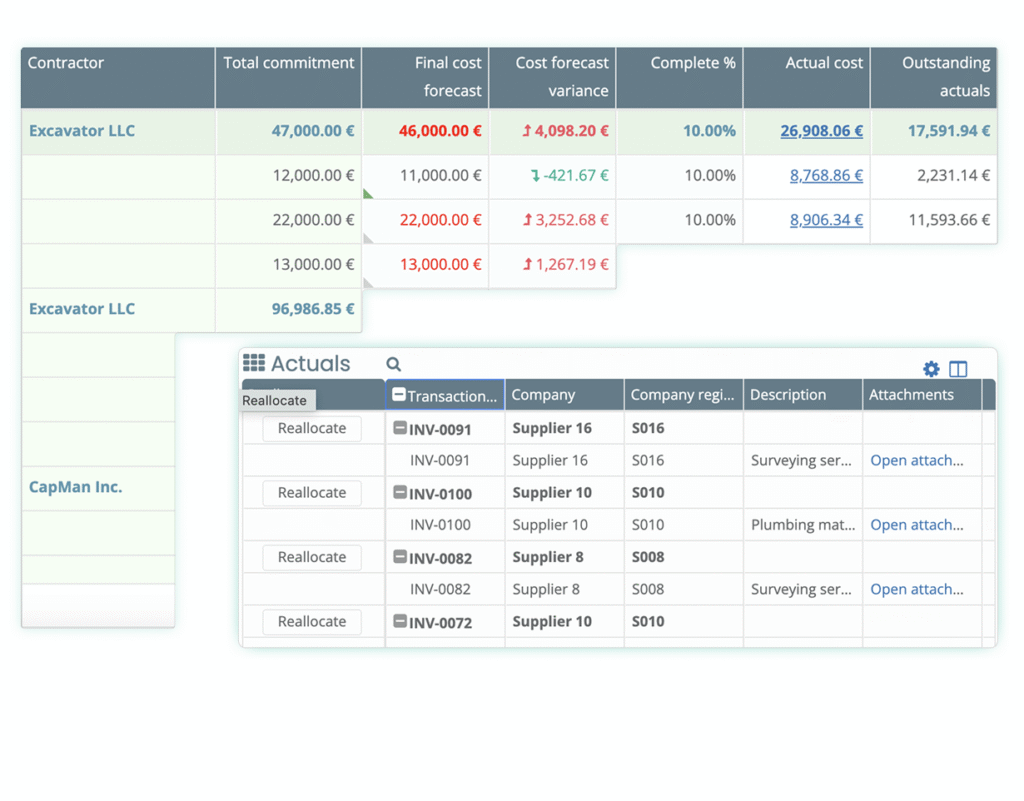
Monitor project spending against budgeted amounts and catch deviations. Bauwise enables intelligent automated connection of actual costs to budget lines, commitments, and cost codes — ensuring financial clarity across every phase of the project.
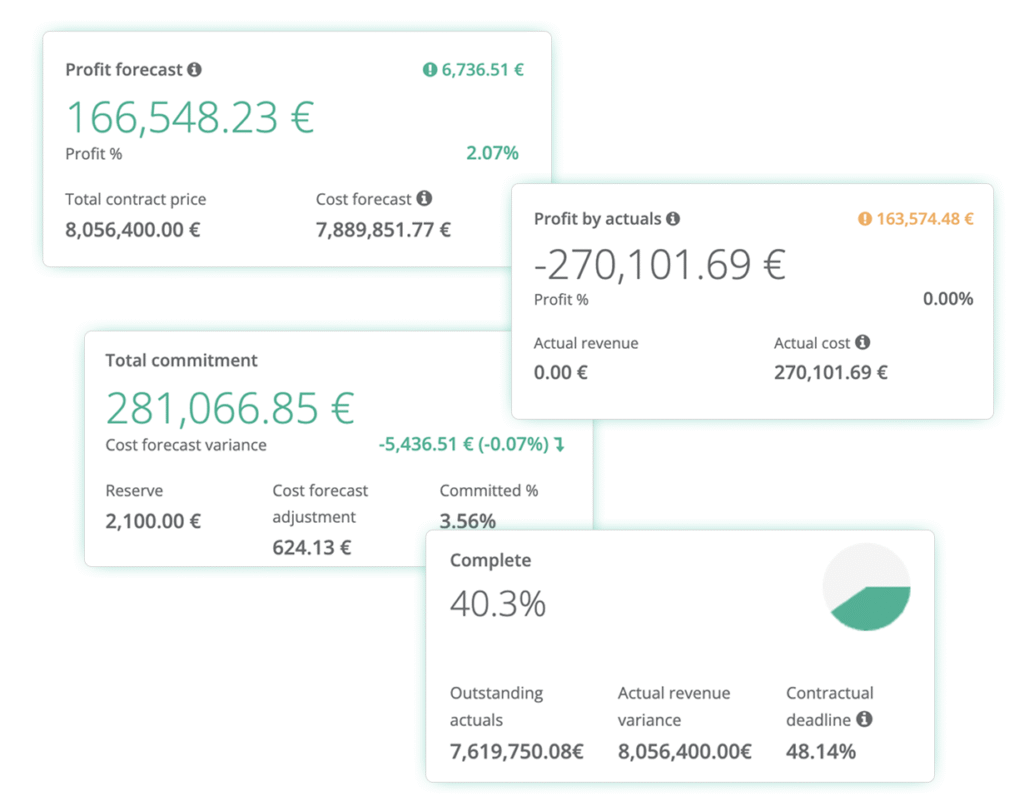
Get real-time visibility into the profitability of each project by continuously tracking margins, change orders, committed costs, and actuals. See how each new invoice, purchase order (PO), or change order affects each project’s bottom line.
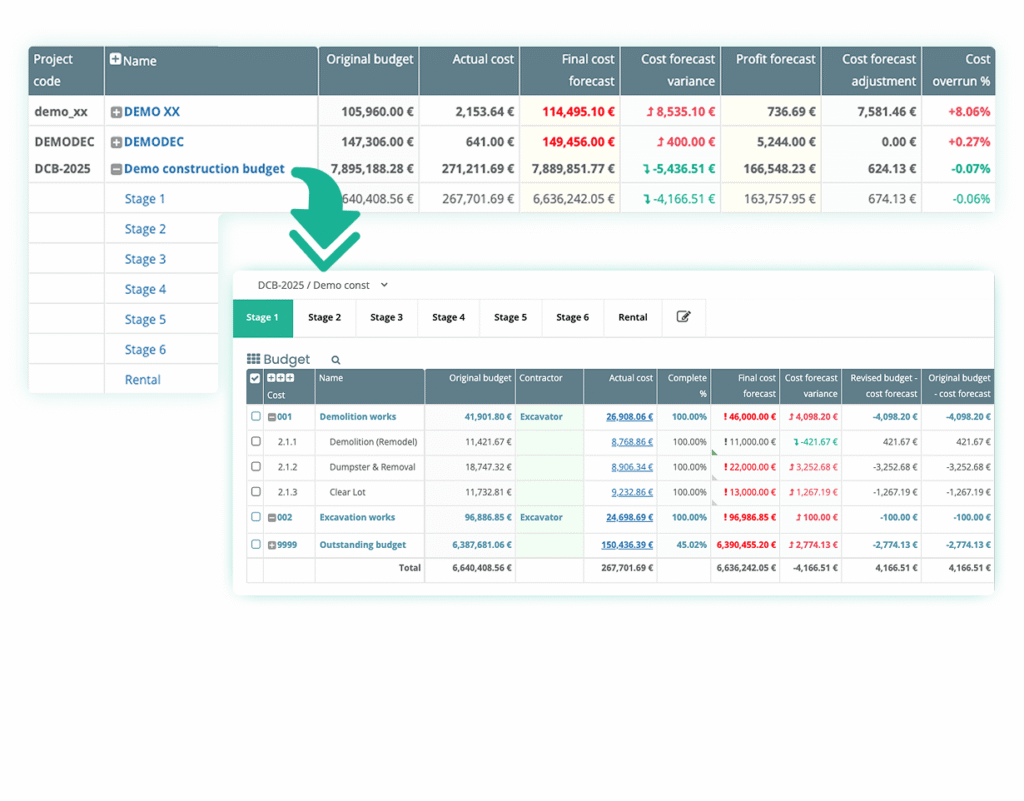
Track and project future costs based on real-time commitments, trends, and performance data. Generate forecasts manually or automatically, apply buffers and corrections, to ensure transparency at both project and portfolio levels. Integrated approval workflows guarantee that only validated data is reflected in the financial reports.
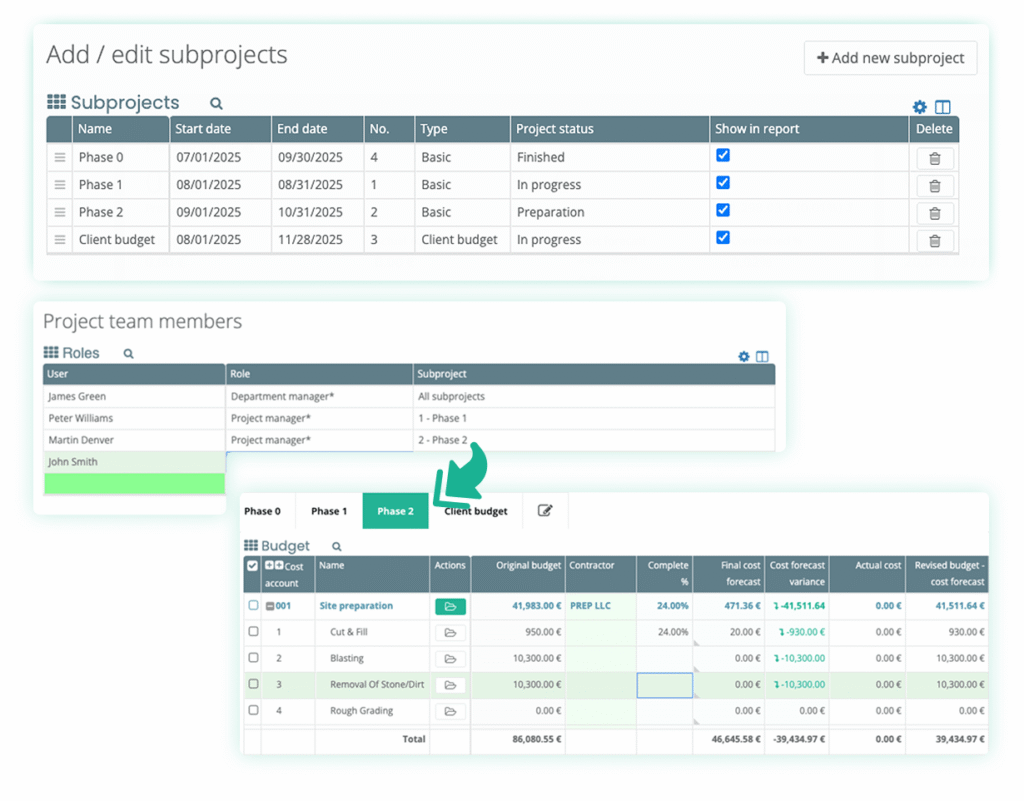
Split complex construction projects into sub-projects by phase, location, or structure. Track budgets, costs, and progress for each sub-project independently, while maintaining a unified view through consolidated reporting.
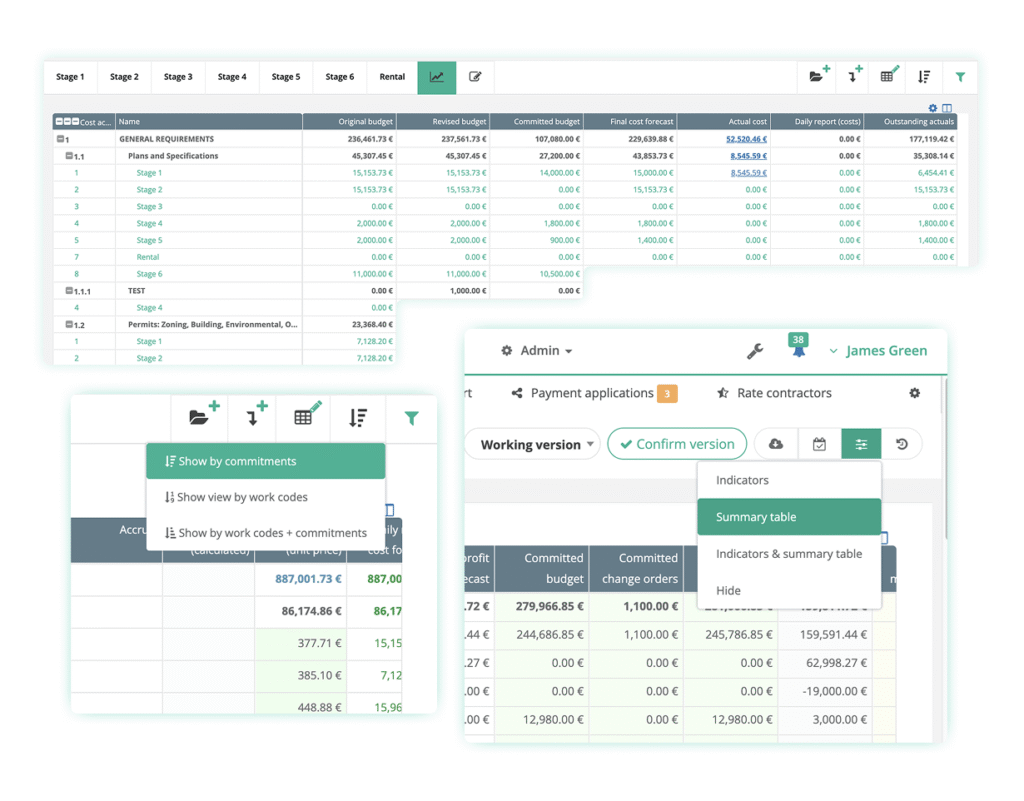
Access standardized and adjustable reports at any point in the project lifecycle — from budget planning to final billing. Monitor revisions, commitments, and changes in real time to support internal decisions and provide clients with clear, up-to-date insights.
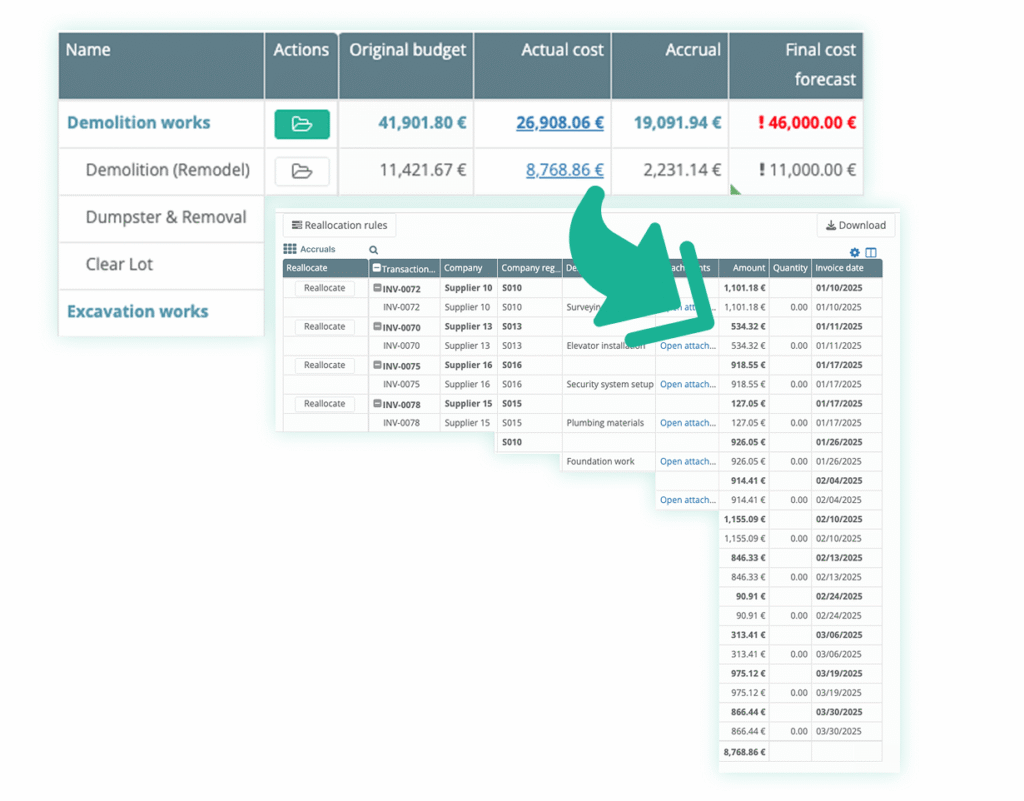
Log unbilled costs and reflect expected expenses in reports before invoices arrive. Track accrued labor, material, and equipment costs to maintain accurate cost reporting and align budgets with real-world spending.
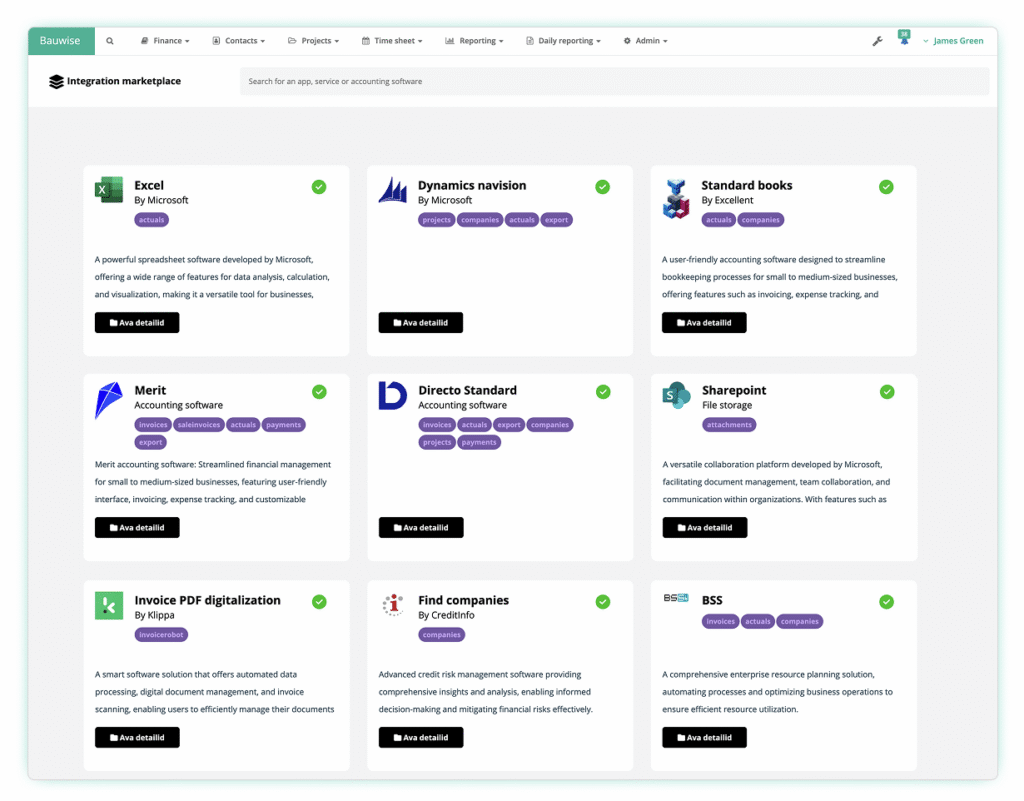
Connect Bauwise to your Enterprise Resource Planning (ERP) or accounting systems to eliminate double entry and ensure data consistency. Automatically sync invoices, budgets, purchase orders (PO), subcontractor contracts, and costs between Bauwise and ERP/accounting systems to align financial and project reporting.
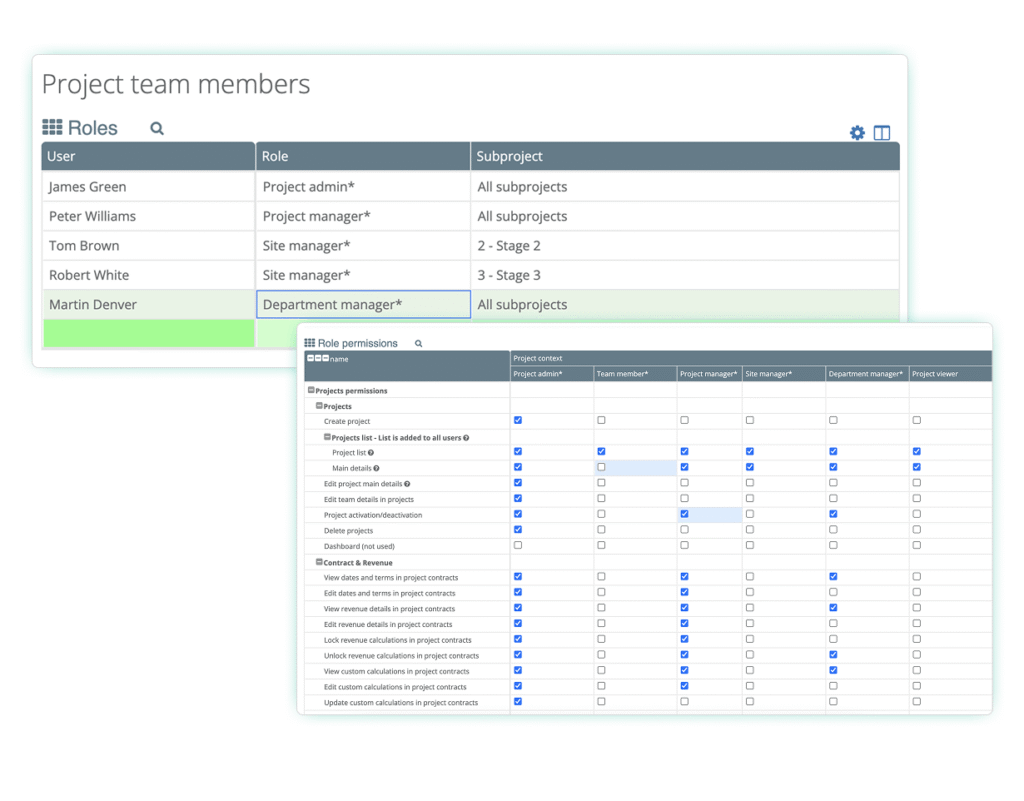
Structure and manage construction project teams with clearly assigned roles, responsibilities, and access levels. Control who can view, edit, or approve budgets, change orders, and financial data based on their role. Keep internal teams and external stakeholders aligned without compromising control.
Managing €10B+ in Construction Budgets with Bauwise

























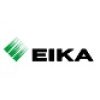


Use our free construction budget and daily report templates — available in Excel and Google Sheet formats







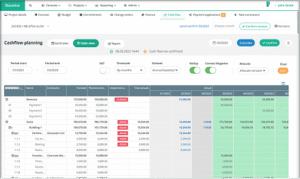
Get a structured, automated framework to plan, forecast, and monitor construction cash flow across all project stages. Generate cash flow forecasting baselines with one click, fill past periods with actual cost and revenue data, and align projections with the project’s Cost-at-Completion (CAC). Refine future forecasts, adjust monthly distributions, and manage approvals through version-controlled tracking.
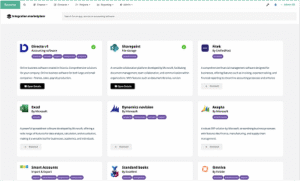
Automate data flow between your ERP or accounting software and Bauwise. When integrated, construction-related invoices flow directly into Bauwise for approval and return to the ERP or accounting software enriched with data — cost allocations, budget lines, and approver info — no double work required.
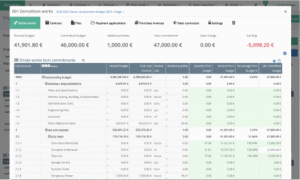
Automate commitments — create purchase orders (PO) and subcontractor contracts directly from budget lines. Manage scope changes, variations, and back charges from Applications for Payment (AfP) in real time. Track actuals, advances, and accruals at every stage. Allocate contingency reserves, forecast accurately, and centralize all vendor data for better procurement decisions.
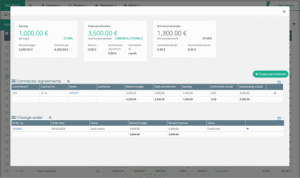
Track, review, and approve construction project scope changes. Submit change order requests with attachments, automatically calculate their impact on project cost, and adjust budgets upon approval. Maintain versioned audit trails and status tracking to ensure compliance, transparency, and project continuity.
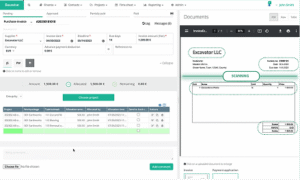
Automate purchase invoice processing with AI-powered data extraction, pre-defined approval workflows and unique invoice allocations. Link invoices directly to purchase orders (PO), contracts or Applications for Payments (AfPs). Manage consolidated invoices for multiple projects between different teams. Meet governance standards, and comply with internal financial policies.
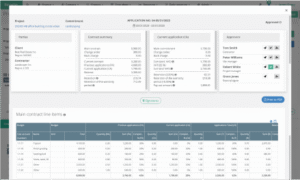
Accelerate month-end reporting between Contractors and Subcontractors by streamlining the Applications for Payment process into a structured, auditable workflows. Initiate change orders and track progress, apply retentions and back charges with full compliance. A dedicated Subcontractor portal, automated notifications, and digital validation keep all parties aligned.

Create tender packages directly from budget lines, identify qualified bidders through the Bauwise database, and issue invitations to tender (ITT). Provide secure, login-free access for bidders to submit RFQs and compile all bids into an automatically generated comparison table. Ensure full traceability by linking every bid and award back to the budget lines and cost codes.

Review and approve construction invoices directly from your mobile device. Capture receipts and invoices — the Bauwise Mobile App uses AI-powered image recognition to extract data from images. Allocate receipts and invoices using Bauwise Purchase Invoice Management module.
try now
The typical learning time is just two sessions, while our software can save you up to 4 workdays per month

Bauwise equips construction CEOs with an automated cost management tool to maintain financial control, efficiency, and profitability across expanding portfolios. The cost management software links budgets, forecasts, contracts, and purchase orders in one system, enforcing approval workflows that preserve budget integrity and accuracy. Chief Executive Officers gain real-time visibility into consolidated portfolio performance, safeguarding project continuity, automating reporting, and simplifying construction portfolio management.

Bauwise provides an automated cost management solution for construction CFOs to obtain timely, verified financial data for cash flow and refinancing decisions. The software consolidates construction budgets, contracts, purchase orders, change orders, invoices, and Applications for Payment into a unified data source, ensuring all figures are validated, traceable, and audit-ready before reaching financial statements. Chief Financial Officers can track contingency budgets and risk reserves, gain visibility into liquidity, flag budget overruns early, and forecast portfolio-level cash flow.

Bauwise helps Construction Managers and Division Managers ensure all construction project costs are reported and accounted for, using an automated construction cost management tool. The software tracks linked budgets, contracts, purchase orders, and change orders, so every commitment is recorded, allocated, and tied to the correct project and cost code. Construction and Division Managers can leverage automated purchase invoice and Application for Payment validation rules with audit trails, compare planned versus actual costs in real time, and monitor division-level performance across projects.

Bauwise supports Construction Quantity Surveyors with an automated cost management solution to plan and manage full cycle construction costs — from forecasting and tendering to variation valuations and reporting. The software reconciles interim valuations, change orders, and actual costs in real time, updating forecasts and Estimate at Completion (EAC) automatically once costs are approved. It generates RFQs and tender packages, standardizes bids formats, and applies approval workflows. Links approved variations to their related contracts and cost codes, calculating their budget, commitments and EAC impact.
We’ve got your questions covered. If you can’t find the answer you’re looking for below, feel free to contact us.
Construction budgeting is the process of building a cost baseline for a project — based on the Work Breakdown Structure (WBS) and the organization’s cost-coding structure (Cost Breakdown Structure, Chart of Accounts, or equivalent), estimates and bids — with contingency and approval limits, then formalized and updated as contracts are awarded. Construction budgeting is done by:
With Automated Construction Budgeting & Forecasting, data from POs, invoices, and schedules update the budget in real time, trigger variance alerts, and roll up construction budget forecasts across projects and phases.
Construction cost forecasting calculates the Estimate at Completion (EAC) and the project’s cash flow forecast based on current scope, progress, commitments, and performance. Accuracy improves when forecasts are:
Automated Construction Budgeting & Forecasting protects margin, improves cost control and makes cash flow more predictable. To automate construction budgeting and cost forecasting, you need to:
Bauwise Automated Construction Budgeting & Forecasting capability pulls data from integrated ERP or accounting software to keep construction budgeting and forecasts current and auditable, enabling automated construction cost forecasting.
Simply put, budget forecasting time-phases the approved budget into a cash-flow plan over the schedule, while cost forecasting predicts Estimate at Completion (EAC) / Estimate to Complete (ETC) from commitments, actuals, quantities, and change orders.
How they work together: Each cycle, you reconcile time-phased budget forecasts vs time-phased cost forecasts to spot cash-flow gaps, over-commitment, or overruns. Automated Construction Budgeting & Forecasting updates both sides automatically using data from Enterprise Resource Planning (ERP) or accounting software and the project schedule, providing alerts on variances.
Automated construction budgeting and construction cost forecasting gives project teams real-time visibility into approved budgets, commitments, and actual costs. As change orders, invoices, and progress data are logged, the system automatically updates the Estimate at Completion (EAC) and cash flow forecasts. This eliminates manual data entry and delays, enabling teams to identify cost deviations early, maintain financial accuracy across all projects, and make faster, data-driven decisions.

The construction sector entering 2026 is neither in crisis nor in a conventional recovery. It is operating in a state of reset. Market activity remains

The RIBA Plan of Work is the UK construction sector’s most widely recognised framework, providing a common set of stages used by architects, engineers, cost

In construction finance, profitability depends on data accuracy and timing — yet achieving both consistently and at scale remains an industry-wide challenge. The 2024 RICS Digitalisation

Fill in your details, and we’ll send the template straight to your inbox.
Dont see Calendly for booking? Click Here to open Calendly

We use cookies on our website to give you the most relevant experience by remembering your preferences and repeat visits. By clicking “Accept All”, you consent to the use of ALL the cookies.